ASUS Striker II Extreme: Mucho Bang, Mucho Bucks
by Kris Boughton on April 11, 2008 7:00 AM EST- Posted in
- Motherboards
Memory Access Latency and Read Performance
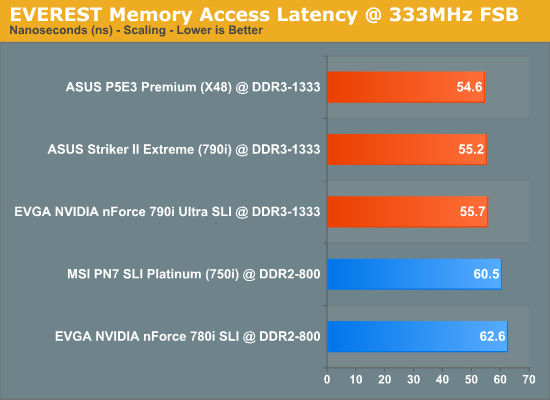
Each of the DDR3-based motherboard showed about a 10% reduction in random memory access latency figures. As expected, the board with the Intel X48 Express chipset, the ASUS P5E3 Premium, takes the gold in this event.
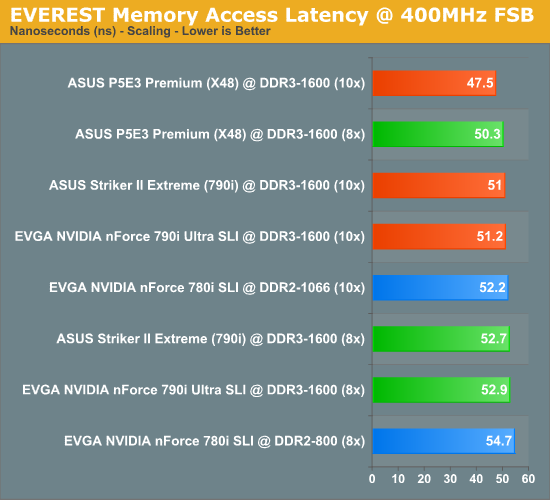
400MHz FSB showed additional small improvements with even lower memory access latencies. Unlike the boards with an NVIDIA chipset, the ASUS P5E3 Premium showed another nice drop in latency simply by moving to the higher multiplier (overclocking our QX9770 from 3.20GHz to 4.00GHz). As previously noted, these low access times are precisely the reason why UT3 runs so well on our X48 board.
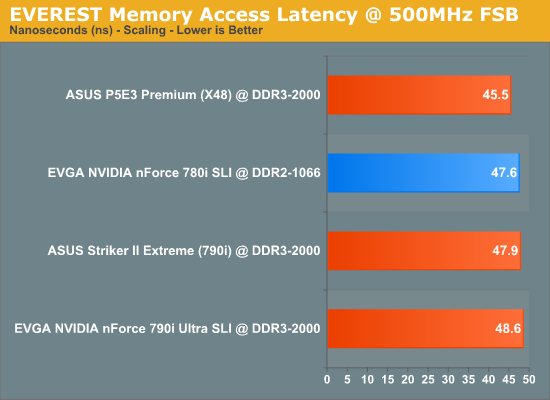
We saw the best memory access latencies of the day with our X48-based P5E3 Premium at 500FSB. The real surprise however came from the EVGA NVIDIA nForce 780i SLI, which showed DDR2 could be nearly as effective at producing low access times as DDR3 when properly tuned.
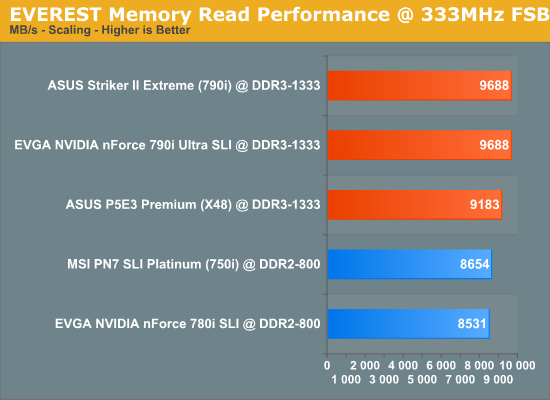
NVIDIA really surprised us with the quality of their first DDR3 memory controller; besting Intel's X48 design was the last thing we expected to see from 790i. According to these results, even DDR3 value memory outperforms the midrange DDR2 modules flooding the market.
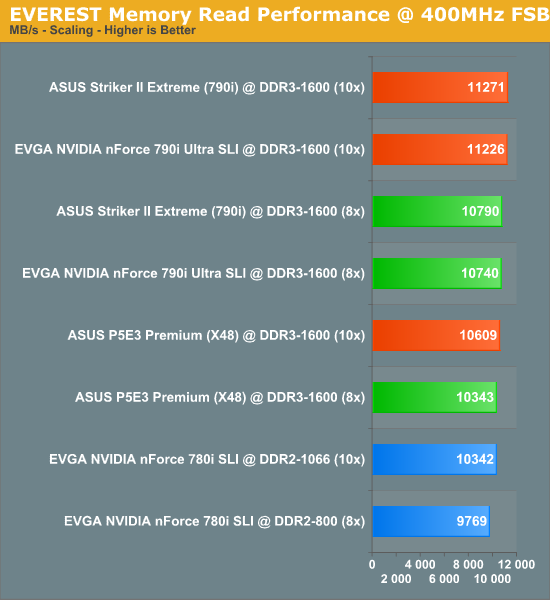
Both EVGA's and ASUS' 790i boards absolutely demolished the P5E3 Premium when it came to raw memory read bandwidth - 500MB/s is a big lead to hold when comparing memory controller performance with memory running at equivalent speeds. The extra 10% memory read throughput seen with DDR3-1600 over DDR2-1066 shows up well in some of the gaming benchmarks. This goes a long way towards dispelling the early, unsubstantiated rumors of lackluster performance from DDR3 memory.
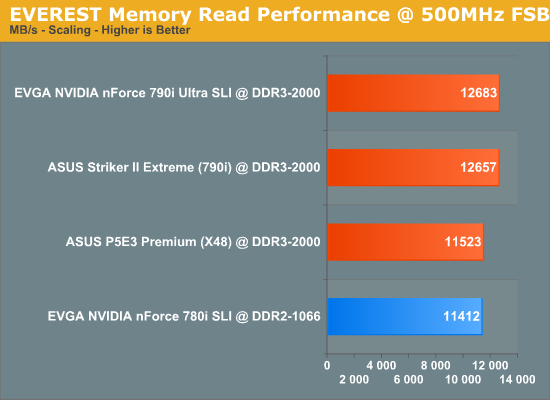
The 790i pulls even farther ahead when the FSB is increased to 500MHz. Intel's X48 Express chipset begins to run out of steam at around 465-475MHz FSB. The same would be true for NVIDIA's 790i Ultra if it were not for the cryptic "P1" and "P2" BIOS options.










23 Comments
View All Comments
seamusmc - Friday, April 11, 2008 - link
For folks considering this board, I strongly recommend visiting xstremesystems.org's forums.Several people are experiencing data/OS corruption when performing any FSB overclocking. (Brings back memories of the early days of the 680i.)
nomagic - Friday, April 11, 2008 - link
LGA775 Core2 Duo/Extreme/Quad, Pentium EE, Pentium D, Pentium including next-generation 45nm CPU supportWhich would include Nehalem, I suppose? Should I also assume that a BIOS update would be required for Nahalem support? Is it possible that a custom board like this might have trouble supporting Nehalem when the times comes?
TemjinGold - Friday, April 11, 2008 - link
No. NOTHING out right now can support Nehalem as that's a completely different socket (different pin count too).